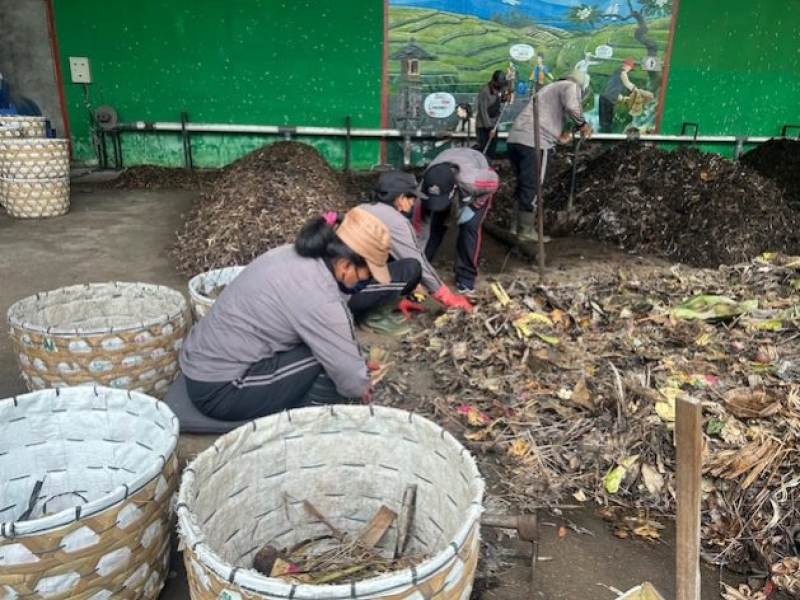- India Sees 9% Drop in Foreign Tourists as Bangladesh Visits Plunge |
- Dhaka Urges Restraint in Pakistan-Afghan War |
- Guterres Urges Action on Safe Migration Pact |
- OpenAI Raises $110B in Amazon-Led Funding |
- Puppet show enchants Children as Boi Mela comes alive on day 2 |
Bali Locals Lead Zero-Waste Revolution

Villagers compost organic waste at a locally managed waste facility in Sidan Village, Gianyar Regency, as part of a grassroots effort to create a zero-waste Bali. Photo Collected
On Christmas Eve last year, Bali's iconic beaches turned into garbage dumps. From Kuta to Jimbaran, layers of cans, bottles, and driftwood washed ashore, shocking tourists and triggering a renewed debate: is paradise drowning in waste?
“It’s getting worse every year,” said Siboto Sayeda, 25, who joined volunteers in a two-day beach clean-up organised by a local NGO. But the effort was temporary. Months later, beaches like Kuta remain plagued by tides of trash.
For tourists like Sweta Kala from India, the experience has been disappointing. “We chose Bali over Goa, but haven’t been able to swim once. The beach is filthy.”
According to Bali’s Central Bureau of Statistics, the island welcomed nearly 8 million visitors in 2024, generating almost 2 million tons of waste — a 30% rise from 2020. Most of it ends up in the Suwung landfill or is burned on-site, especially in areas with poor access.
“Awareness is lacking,” said Fabby Tumiwa, Executive Director of Jakarta-based IESR. “Enforcement is weak, and infrastructure is limited.”
In Gianyar, about 33 km from Kuta, 10 villages have united to build a waste-free future. Their initiative, Merah Putih Hijau (Red White Green), focuses on waste separation, composting, and creating a circular economy. At the Sidan village facility, organic waste is sorted and turned into compost that is then distributed to local farmers.
“This is a programme run by and for villagers,” said Dewi Kusumawati, project manager. “Everyone is involved—from sorting waste at home to producing compost.”
Despite national policies to promote organic farming and village-level waste management, many government-funded facilities have failed. In Gianyar, only 36 of 129 facilities built are functional.
While composting efforts are taking off, plastic waste continues to pile up. The community lacks facilities to recycle non-organic waste. One storage room is now packed with unsorted plastic, awaiting solutions that are beyond the village’s current capacity.
“This needs partnerships with government and the private sector,” said Hermitianta Prasetya of the Bumi Sasmaya Foundation, which supports the programme.
The group is now working to build networks with hotels, restaurants, and government agencies. “Tourism is our lifeline, and garbage threatens that,” said Prasetya. “We need collective action.”
With 1,300 hospitality businesses in Gianyar alone, it’s a daunting task. But Agastya Yatra, head of Bumi Sasmaya Foundation, remains hopeful: “If we segregate, recycle, and reuse together, we can reclaim our island from waste.”

